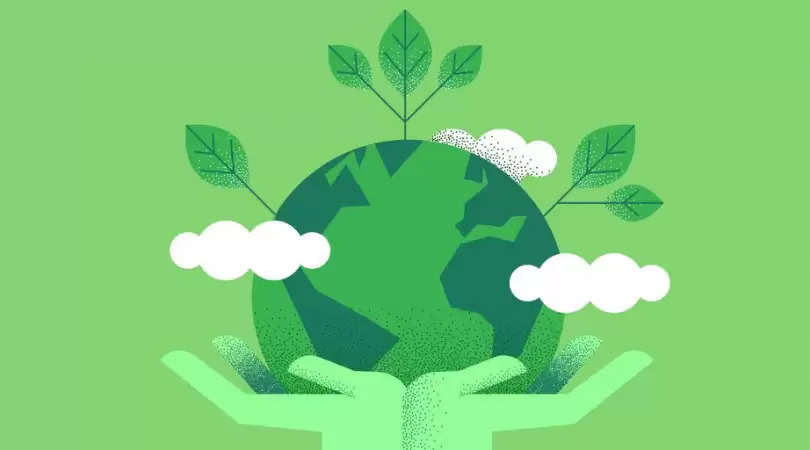Education of young minds, the key to a greener future

By James K Sangma (Minister Forest & Environment)
The COVID-19 pandemic has changed the perception of how we view the world, and have brought the “erstwhile distant threat” of climate change to our doorstep. Our consumption has exceeded the regenerative rate of the planet, and despite various sustainability strategies implemented across the globe, there’s no escaping the “1.5 °C reality”.
Across the world, a tidal wave of strong public sentiment along with political pressure to treat nature as an asset has emerged to avert the challenge of climate change.
And it is the young minds who are leading the charge. Take for instance, the protests led activist Greta Thunberg and millions of young students across the globe against the inaction towards climate change. These protests are a true reflection of the civic-mindedness of the millennial generation and the Gen Z’s attitude towards the environmental future of our planet.
Why we need to think about inter-generational equity
In this regard, Meghalaya, with its forest-based economy and nature-inspired spirituality embedded in its indigenous origins, need to lead by example. We must chalk out a path towards regenerative and conservation-based economy by educating the public about climate change and its conservation. And only then, we will be able to sensitise our human resource about the 21st century ideals of a sustainable planet. It is critical for our young generation to be updated with knowledge, skills, values, and attitude needed to build a green, low emission, and climate-resilient future.
Meghalaya has one of the largest forest covers in the country and one of the most distinctive ecological heritages in the world. And hence, it is critical for us to introduce and train our young minds about the indigenous conservation approaches and develop a cognitive process of learning about the changing climate reality of the world. And one of the best ways to do it is by introducing a curriculum on environmental conservation in our education system.
The thrust is on empowering the people to achieve sustainable development in three dimensions - economical, environmental, and societal - that will be in sync with the global geo-economic shift towards a green future.
In India, progressive states like Odisha have already introduced disaster management as a mandatory subject in schools and colleges. And in the world, Italy has become the first country to make climate change a compulsory subject in schools, followed by New Zealand.
It is also important for our state’s young population to learn about the state’s natural capital, indigenous environment and conservation protocols inscribed in our Khasi, Garo, and Jaintia ancestral concepts. They must learn about our biodiversity heritage to attune themselves with new bio-economies, green action and low carbon livelihood opportunities of the future. That way, they will help in making Meghalaya an environmental leader – a state on the lines of other forest-based economies such as Costa Rica.
Climate change is a ‘hyper-object’ as stated by Timothy Morton – “a multi-pronged problem that requires intervention and overhauling of economic and social structures and institutions along with mindset, it stretches from adapting to low carbon lifestyles to livelihoods, from energy usage to manufacturing and food habits”.
This is not a theoretical subject alone, but a practical one as well. And one can rip its benefits only when both theory and practicality are merged. Biodiversity visits, regenerative agriculture classes, bio-economy workforce development, and ‘service hours’ for the environment should also be a part of this educational initiative.
We need to build human and institutional capacity through education, values, and skills that are critical to jumpstart green frontier industries and models in our state. We need to remember that today’s students are the stakeholders of tomorrow.
Climate change and conservation as a subject in school is the start of our transition towards an environment-first state ensuring inter-generational equity.
TNT-The Northeast Today is now on WhatsApp: CLICK HERE to receive more updates on your phone.
ALSO READ: EDITORIAL | Energy Transition in Meghalaya: Renewables to change the game?

















